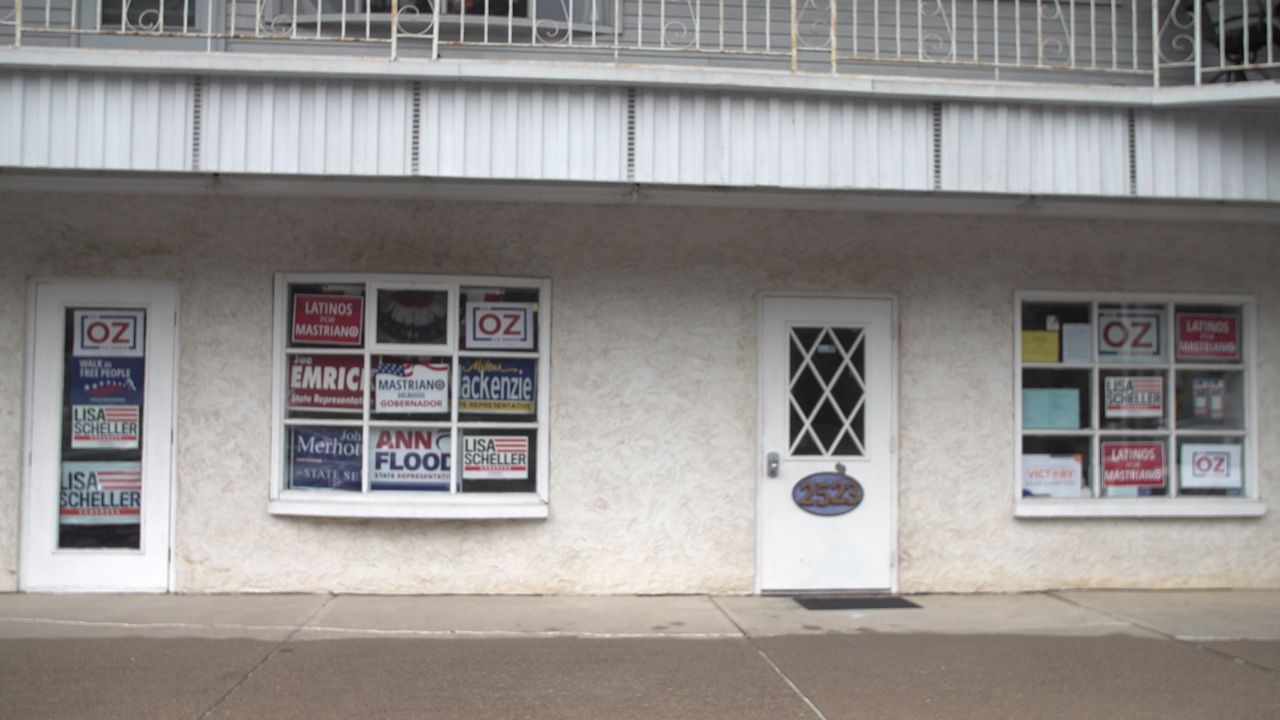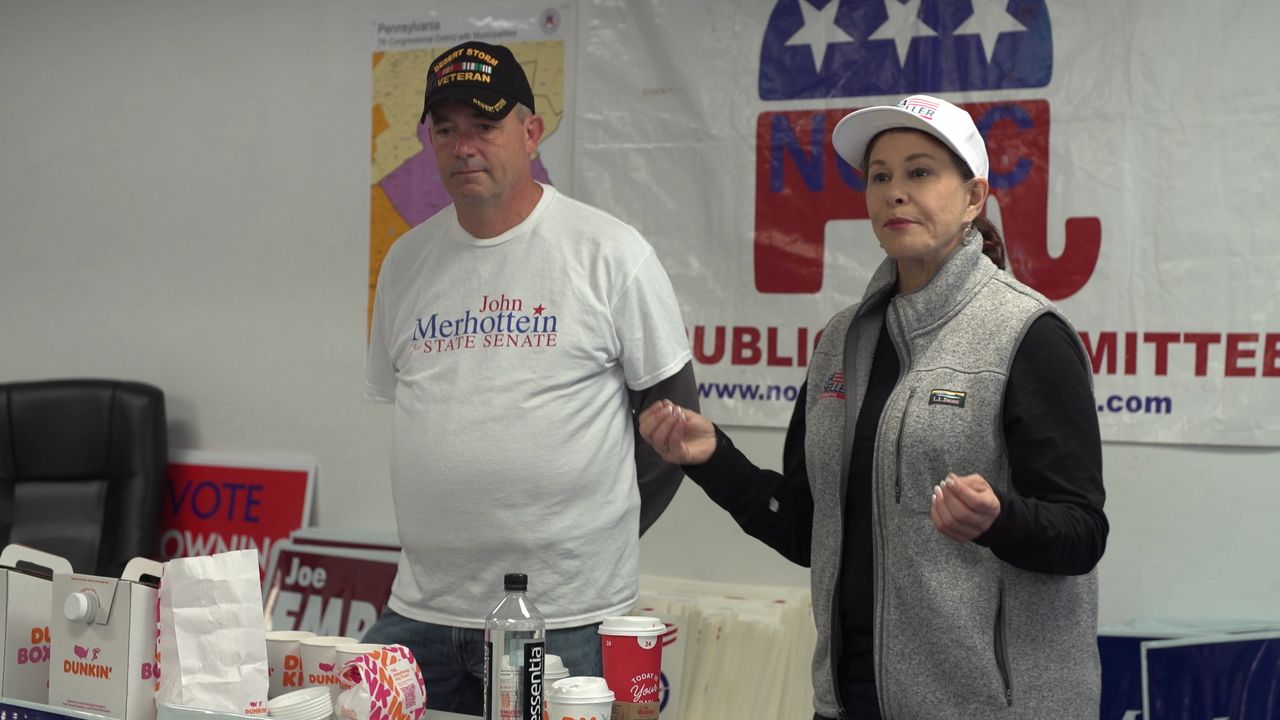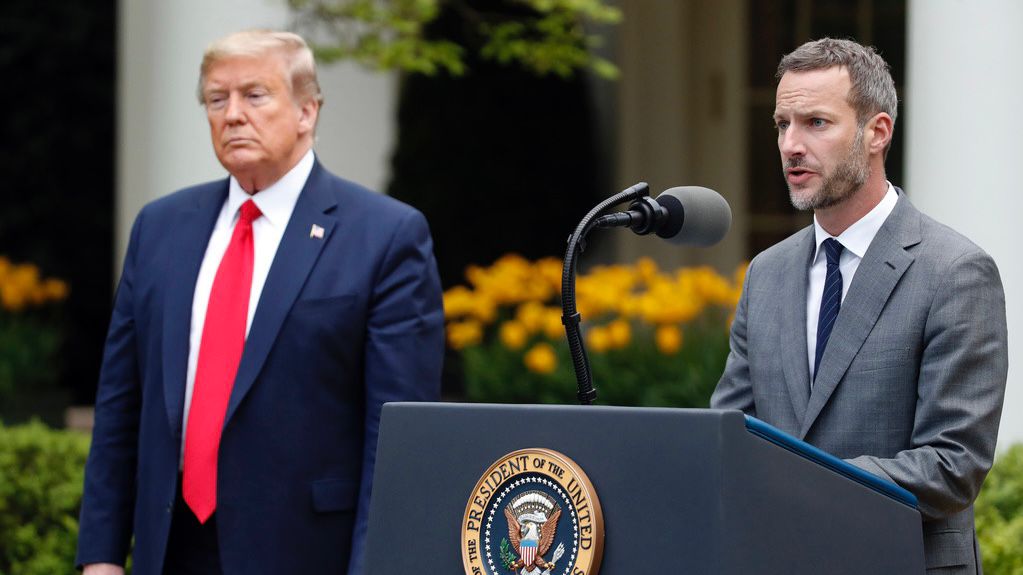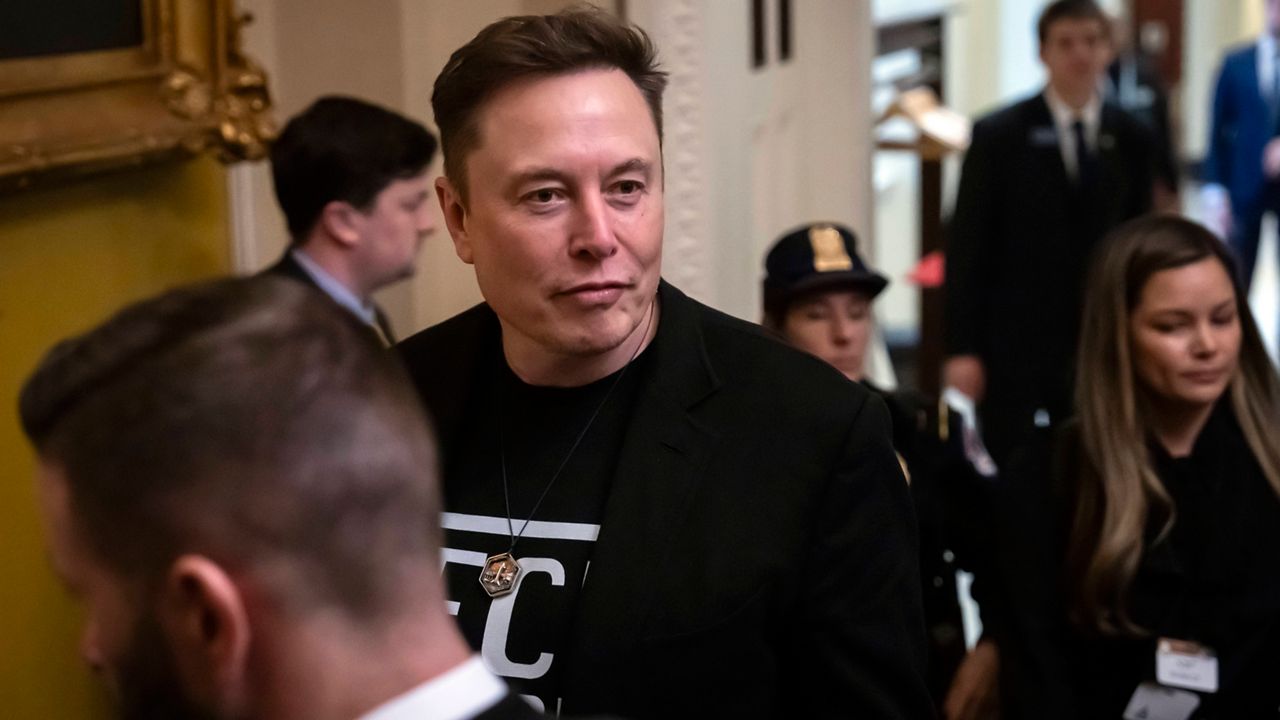With a little over a month until the midterm elections, key races in battleground states could make the difference in the balance of power in Congress next year.
One of these states is Pennsylvania, a state where a U.S. Senate seat, the governor’s chair and all 17 seats in the U.S. House of Representatives are up for grabs.
Pennsylvania is, perhaps more so than most other states, a bellwether of political feelings across the country, split between rural counties that tend to lean more Republican and major metropolitan areas that vote with Democrats.
In 2016, Donald Trump carried the Keystone State's presidential election by a little over 44,000 votes; Joe Biden flipped the state back to blue in 2020, nearly doubling Trump’s margin of victory and carrying Pennsylvania with over 80,000 votes.
Democrats currently hold a narrow majority in statewide offices, with one senator representing each party and nine Republicans and nine Democrats splitting the state’s 18 House seats, which were reduced to 17 after the results of the 2020 census. The state’s Gov. Tom Wolf, a Democrat, gives the party an edge.
But, with a new Congressional map that gives Republicans an ever-so-slight boost in the state, that could change come Nov. 8.
Likely the most high-profile race in Pennsylvania – and certainly one that has garnered widespread national attention – is that of the competition for Senate between Democrat John Fetterman, the state’s current lieutenant governor, and TV personality Dr. Mehmet Oz, who is running as a Republican.
The Senate seat is currently held by retiring Republican Sen. Pat Toomey. With the Senate split 50-50, the Keystone State is key to both parties’ political plans.

At stake is President Joe Biden’s agenda: from the budget to foreign affairs, plus federal court vacancies and other nominations.
Should Fetterman win Pennsylvania’s Senate seat, Democrats as a whole would have an 81% chance of winning the Senate, according to calculation from FiveThirtyEight. But Fetterman’s lead has narrowed in recent weeks across a number of polls, and the Cook Political Report recently changed the race to a toss-up from a slight Fetterman favorite.
Pennsylvania also has an open governor's race, a seat for which GOP State Sen. Doug Mastriano is facing off against Democrat Josh Shapiro, the state's attorney general
Mastriano’s views are solidly in the mold of his backer, former President Donald Trump, though he is very much considered the longshot.
“He is someone that if he was to win in a Pennsylvania race would be unlike any other candidate that's won statewide office in a state that usually elevates more moderate, traditional candidates,” Professor Christopher Borick, who runs the respected polling center at local Muhlenberg College, told Spectrum News of Mastriano.
The governor’s office appoints the top election official for the state, which can affect major issues like the economy and abortion.
The economy is a particular focus of at least one House race. In Pennsylvania’s 7th Congressional district, both incumbent Rep. Susan Wild, a Democrat, and Republican challenger Lisa Scheller are campaigning to restore a new generation of local manufacturing, echoing candidates in many other states.
“What I want to do is put in policies that are going to bring manufacturing back to the United States, and that is low taxes, reasonable regulation, good infrastructure, safe communities,” Scheller told Spectrum News. Scheller runs a third-generation chemical firm with offices in seven countries.
Wild rebutted by saying Scheller’s expansions aren’t in Pennsylvania – but China, as Scheller’s company website makes clear.
“The only American job that is secure at Silberline Manufacturing is Lisa Scheller's job as the CEO and owner of that company,” Wild told Spectrum News.
While steel is no longer king, Pennsylvania’s Lehigh Valley has a growing new economy – and, along with inflation, a problem seen in other parts of the country.
“Overall unemployment [is] very low, actually an employee shortage in many cases, not having enough people to fill positions,” Prof. Borick told Spectrum News, adding: “It is an amazingly representative district of, I think, the United States as a whole.”
During most midterm years, power in Congress typically swings away from the party in power in the White House. But in June, the Supreme Court scuttled the federal right to an abortion, a hot-button issues many Democrats are hoping scrambles the pattern.
One such Democrat is Rep. Wild, who is running a television ad attacking Scheller’s position on abortion rights.
“I talk to women all the time who remember the dark days of illegal abortions. I've had women cry to me. I still have a hard time believing that we're still having to fight this fight,” Wild says in a recent advertisement, continuing: “My opponents say that she was open to the idea of a national ban on abortion, even in cases of rape or incest, to me is unconscionable. It's not the role of Lisa Scheller or anybody in the government to be telling you what you can do with your body.”

According to Scheller’s campaign website, she “supports prohibitions on abortion such as parental notification for minors seeking abortions, a ban on late term abortions, and a prohibition on taxpayer funding for abortions.”
For her part, Scheller has maintained focus largely on issues like crime and the economy, with a recent advertisement proclaiming: “Lisa fights hard for workers and their families.”
While access to abortion rights are among the top issues for some Pennsylvanians, many who spoke with Spectrum News said other problems – like high gas prices, rising inflation and even the results of the last election – are of more importance.
“I just looked at my 401K. I want to retire one day, so I'm crying now,” Terri Lynn, a Pennsylvania voter, told Spectrum News.
“I have a thing on this with gas prices and how we are, I think, limiting our energy sources,” Pennsylvanian Craig Laubach told Spectrum News.
“I'm more Republican than I am Democrat, because at least the Republicans are not going to lie to you,” Terri Quick, another Pennsylvania voter, said in part.
Those answers are largely in line with national voter sentiment, possibly to the chagrin of Democrats, who hoped abortion would pull the tide in their favor.
According to an early September poll from NPR/PBS NewsHour/Marist, a majority of Americans put inflation and the economy, though far more Republicans than Democrats answered as such. The second most important issue was abortion, followed by health care.









